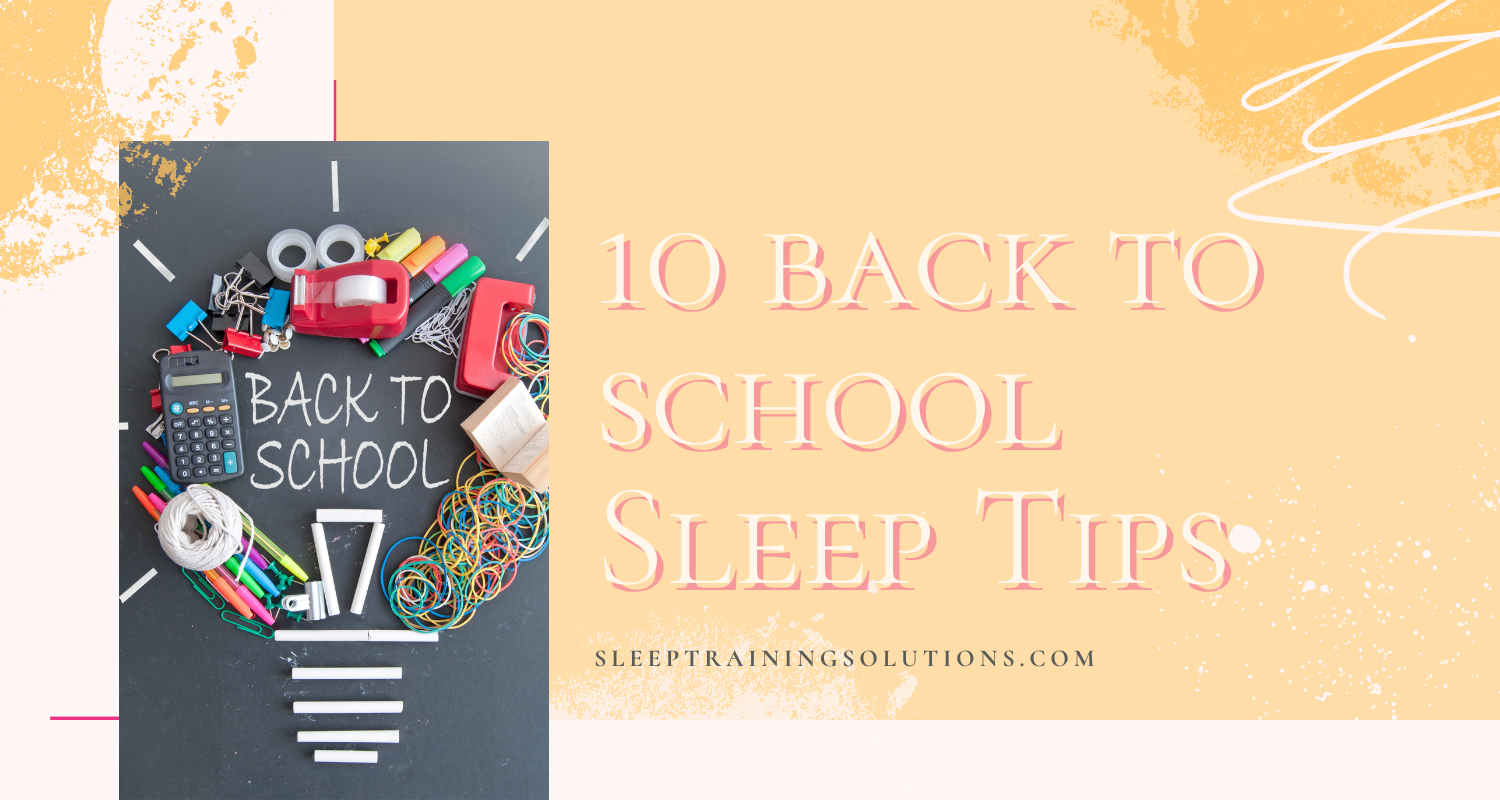10 Back to School Sleep Tips
It’s that time of year again…getting ready for another school year is fun and exciting with the new clothes, backpacks and school supplies, but adjusting to the “school” sleep schedule can take some fun out of the whole experience!
When a child is sleep deprived and not getting the appropriate amount of sleep for his/her age, it can affect attention, concentration, memory, creativity, and problem solving–all skills that children need to perform well in school. Sleep deprivation can also manifest as hyperactive behavior, which makes sitting still in a classroom quite difficult.
To help ease your child back into the school year routine, here are my 10 Back-to-School Sleep Tips:
Your child’s body needs time to adjust to the new timing, so start easing back into the Fall schedule with an earlier bedtime and wake up time at least 2 weeks before school starts.
Look at school start times, bus schedules and carpool lists to determine what time your child needs to be out the door and then factor in how long it takes for your child to get ready in the morning.Keep in mind the optimal number of hours of sleep for your child when setting the most appropriate bedtime. According to the National Sleep Foundation, children ages 3-5 years need 11-13 hours of sleep (that includes a daytime nap) and 5-12 year olds need 10-11 hours. Most children take 15-20 minutes to fall asleep after the lights have been turned off, so factor that in when setting the bedtime.
If your child’s bedtime has been 9:00pm during the summer, and it needs to move back to 7:45pm, push bedtime earlier by 15 minutes for 2-3 nights (depending on how many days you have before school starts) and wake your child up 15 minutes earlier during that time too.
When your child is adjusting to an earlier bedtime, make sure that he/she gets enough physical activity during the day to ensure that that he or she is sleepy at bedtime. BUT no exercise within 2 hours of bedtime (that includes rough housing and chasing siblings around the house!)
Try to keep the bedtime and wake up times consistent 7 days a week. Staying up later and waking up later on a weekend will make falling asleep on Sunday and waking up on Monday much more difficult.
Re-evaluate your child’s bedroom environment. Optimal sleep temperature is 65-68 degrees. Ensure that the room is dark enough for sleep.
If your child played all summer and then crashed at bedtime, it’s time to bring back a bedtime routine.
Limit screen time at least 60-90 minutes before bed. Research has shown that light from computer/television/tablet screens delay the necessary drop in body (core) temperature and melatonin production, and together will delay sleep onset by up to 2 hours. I always suggest no technology within AT LEAST 60-90 minutes of bedtime.
Expose your child to bright sunlight first thing in the morning and dim light in the evening for 45-60 minutes before bed to help reset his/her biological clock.
Limit sugar and caffeine after lunch time.
Settle into that first week or two gradually - try not to plan late end of summer BBQs or Target runs that may push bedtime later. Help your child adjust to that earlier bedtime by not being out-and-about too close to bedtime!
Related Posts:
This post is for informational purposes only and may not be the best fit for you, your child and/or your personal situation. It shall not be construed as medical advice. The information and education provided here is not intended or implied to supplement or replace professional medical treatment, advice, and/or diagnosis. Always check with your child’s physician or medical professional before trying or implementing any information read here.




